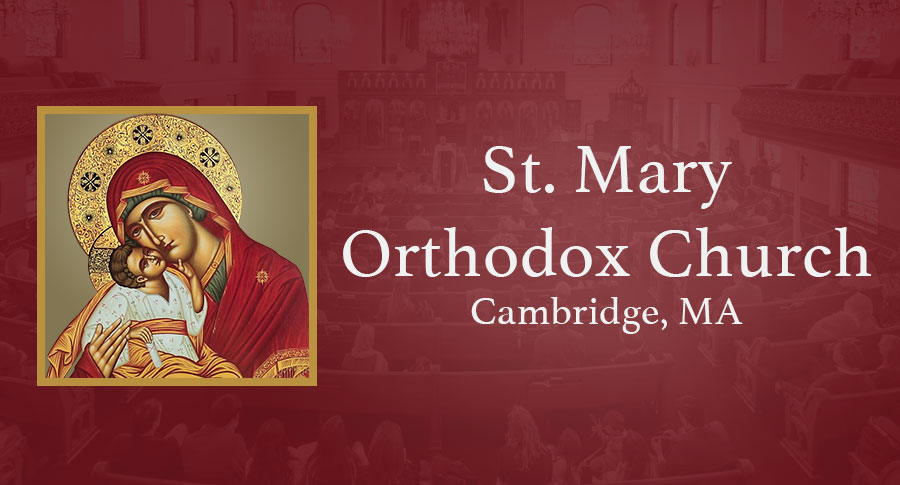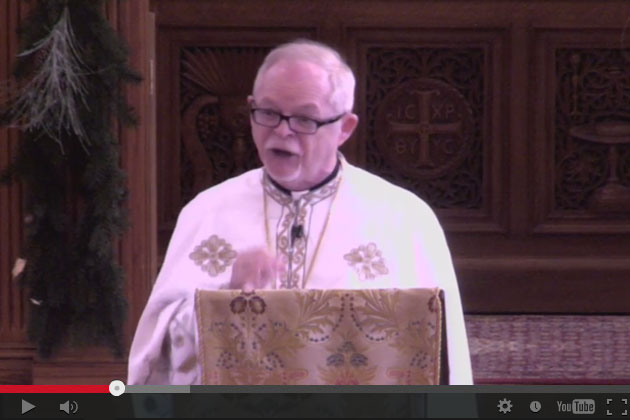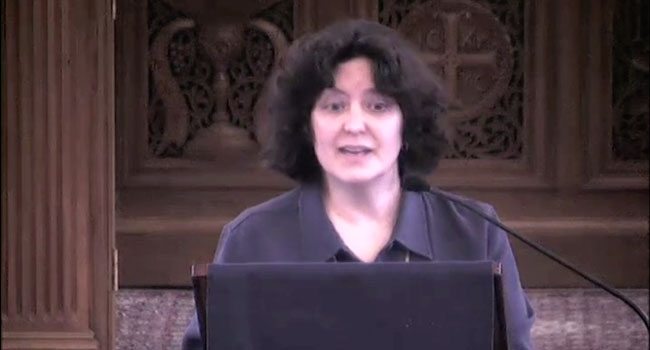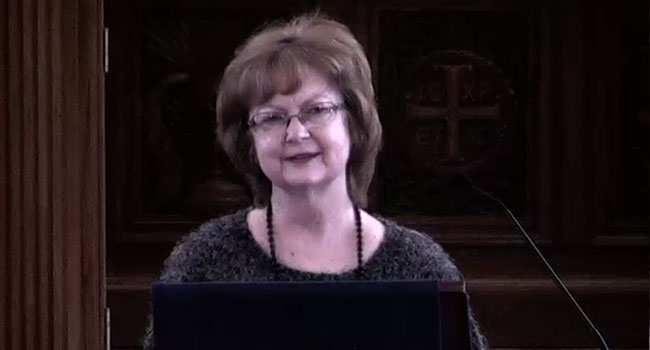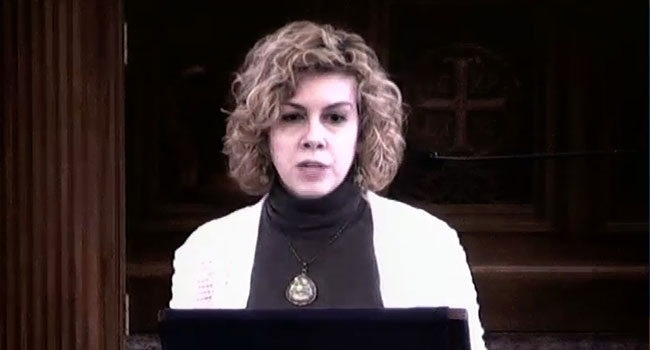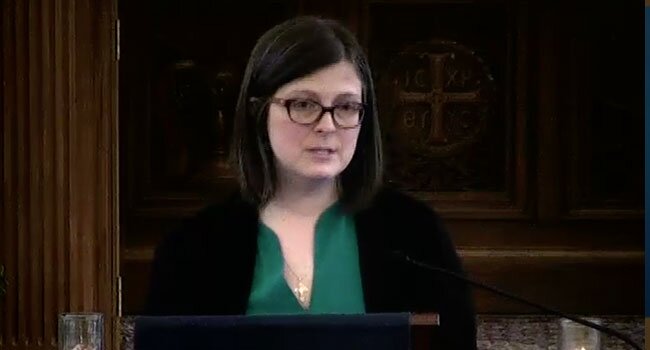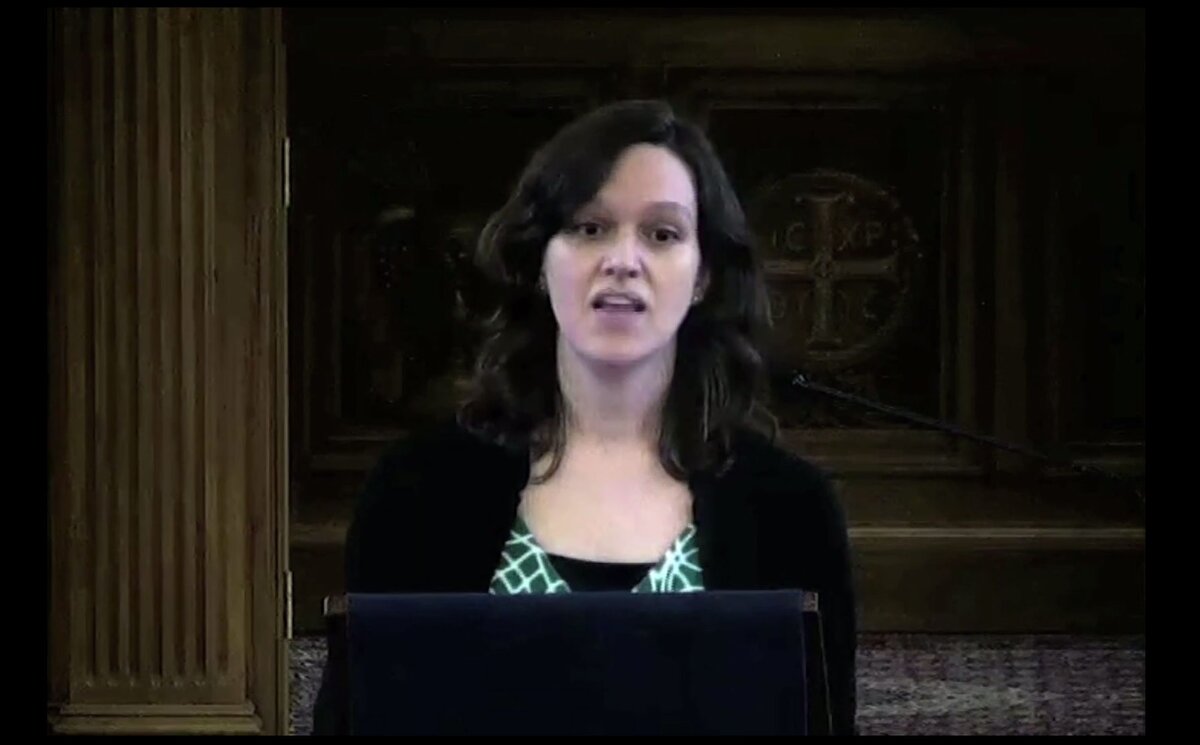Sermons from St. Mary Church
On the Service of Holy Unction
April 08, 2015 - by David Vermette
This year, as catechist emeritus, I’d like to take a catechetical view of this service. That’s a fancy way of saying that I’d like to look at it from the standpoint of what we can learn about it and from it. Traditionally, this service is offered by seven priests. We just heard seven epistle and seven gospel readings. In some communities seven candles are placed on the table behind me, and one candle is lit after each Gospel reading. Why seven?
The Message of the Suffering Servant
April 05, 2015 - by Fr. Antony Hughes
The most popular reading material in first century Palestine was the Book of Daniel with all its apocalyptic language and imagery. The brutality of the Roman Empire drove the people to long for a Messiah that would destroy the Empire and restore the Kingdom of David. It is not hard to see why the crowd in Jerusalem was so excited when they heard that Jesus raised Lazarus. The cruelty of Rome was extreme. Surely this man who could raise the dead would be the one to destroy Rome.
Reflections on Lazarus Saturday - “Lazarus, Come Out!”
April 04, 2015 - by Teva Regule
These three words summarize the feast that we celebrate today. They point to the raising of Lazarus from the dead and are a harbinger of Jesus' own death and resurrection, foreshadowing the in breaking of God’s reign into history. We believe they also prefigure our own resurrection.
Holy Saturday - Praise and Hope
March 29, 2015 - by Melissa Nassiff
The Lamentations Service which we celebrate on Friday evening is actually the matins of Holy Saturday, sung on Friday 'in anticipation.' What we focus on in this service is Christ's death and His descent into Hades, which began on the cross on Holy Friday. But even though it is about his death, the service is really not about sadness and lamenting; it's a service of praise for what Christ has done by his death, and hope for our own life after death. Praise and Hope are the themes of Holy Saturday.
Reflections on Great and Holy Friday: The Cross of Christ and the Wise Thief’s Confession
March 23, 2015 - by Linda Arnold and Maggie Rodriguez
We, the beloved, matter. All creation matters. What Christ has done He did because we matter! Let us wait a while with the dying One. Let us not rush to Pascha. But after a time, when we have lamented, when we have come to our senses, when we have let go, when we have owned our stuff and given Him all the parts of ourselves, when through loss and suffering we are stripped of all our fantasies and illusions, let us go into the bright and dawning new day of Pascha.
Humility and Offering: Holy Thursday
March 15, 2015 - by Andrea Popa
While the Holy Thursday shared meal is commonly known as the Last Supper, I would like to consider it also being the Last Lesson of our Lord Jesus Christ. This was the calm before the storm. While the disciples were going about the details of their daily lives, Christ knew this would be the last quiet time of teaching before the events leading to his death began to unfold.
Healing and Forgiveness: Holy Unction
March 08, 2015 - by Sarah Byrne-Martelli
The Sacrament of Unction may be celebrated at any time for the healing of the sick. It is believed that Unction was added to Holy Week, so that those in need of healing and forgiveness would be received back into the Church. It is an opportunity to be reconciled with ourselves and our community in preparation for Pascha.
Coming Closer: Bridegroom Matins
March 01, 2015 - by Stephani Nur Colby
Holy Week is in itself a meditation, a time set apart for us to draw closer to our Lord in a more intimate and powerful way as we follow Him on His lonely, terrifying, beautiful, and glorious road. Today we will be taking a look at the Bridegroom Matins that occur on Sunday, Monday, and Tuesday evenings of Holy Week.
Radical Forgiveness
February 22, 2015 - by Fr. Antony Hughes
Today we are reminded that we must be forgiving. Forgiveness is a radical thing indeed! He asks us to forgive when it is easy and when it is not. He asks us to forgive our love ones and also our enemies. He asks us to turn aside from all thoughts of anger and revenge and take the highest possible road, the narrow road of absolute, unconditional love.
The Walls of the House
February 01, 2015 - by Fr. Antony Hughes
I believe that the parable of the Pharisee and Publican is, on a deeper level, not about two different men, but that each character represents two different parts of most of us. Both are finger-pointers with different objects of focus. The Pharisee on others, the Publican on himself. Who of us is not capable of both?
The God Who Is Here
January 18, 2015 - by Fr. Antony Hughes
We see in today’s Gospel of the Ten Lepers three things that are pivotal to Orthodoxy’s world-view. One: that the light of God shines everywhere for all. Two: that God does not pick and choose who receives his love and who does not. Thirdly: that the human person is a mystery and that all true pastoral care respects that mystery absolutely.
On the Sunday Before Theophany
January 04, 2015 - by Bishop John
In the icons of St. John the Baptist, we sometimes see him depicted with angel's wings. It's not that we think that St. John was an angel, but he was certainly a messenger of God that showed us that what was coming was even a more intimate and greater relationship and ability to be with God than we had before.
The Journey Into Egypt
December 28, 2014 - by Fr. Antony Hughes
In order to grow we must let go. We must leave what is familiar. Abraham had to leave his homeland to find his destiny and become the father of many nations. Joseph, the son of Jacob, had to be sold into slavery to become a prince of Egypt. Joseph, the foster father of Jesus, had to take off for Egypt to save the Christ child. Frodo had to leave the Shire to destroy the Ring and save Middle Earth. This is the Hero Quest - a classic theme in life and in literature.
The Genealogy of Jesus
December 21, 2014 - by Fr. Antony Hughes
We read today the genealogy of Jesus from St. Matthew’s Gospel. It is different from St. Luke’s genealogy and there are reasons for this which we do not time to talk about this morning. I would rather spend time on the point of this Gospel and that is, God became man to save everyone and everything.
The Power of Compassion
November 30, 2014 - by Fr. Antony Hughes
One of the most important things I have discovered this year, is that the last part of the Great Commandment, especially the 'as yourself' part is as important as the first two, to love God and neighbor. I had never realized this. Perhaps Jesus who said, 'The first shall be last,' put it at the end deliberately because of its importance. Without proper self-love we cannot love our neighbors and if we do not love our neighbor, then we cannot love God..
The White Stone
November 09, 2014 - by Fr. Antony Hughes
Something stirred in her, the desire for freedom and from suffering. Isn’t repentance in one sense freeing ourselves from the illusion of the past? She began to see that she was more than her past, more than a disease, more than a label.
The Two Truths That Set Us Free
October 26, 2014 - by Fr. Antony Hughes
When there is a storm at sea the surface of the water is troubled, wild and dangerous. But in the bottom of the sea what is there? There is peace. The storms cannot touch the deep. The soul is like the depth of the sea. It is undisturbed and peaceful, a still point in the midst of everything.
Fierce Compassion
October 20, 2014 - by Fr. Antony Hughes
The miracle he performs is not to demonstrate his power, but to heal the widow's broken heart. God is not interested in power. He does not need to prove himself. The thing he wants us to know is that he cares for all of us personally in every detail of life.
Jesus, the Active Listener
September 28, 2014 - by Fr. Antony Hughes
Notice how attentive Jesus is to the needs of Peter and the other fishermen in today’s Gospel reading. He is totally engaged with them as he is with everyone he meets. He is completely mindful of them, their lives, their interests, their joys and sufferings. When he is with fishermen, he talks about fishing. When he is with farmers, he talks about seeds and soil and weeds. Jesus is always present with the people he meets as if there was no one else in the world.
Loving the World
September 07, 2014 - by Fr. Antony Hughes
According to John, God loved the world so much that he came to tell us and to show us. Although God could always be found in nature and in Scripture, that was not enough. Love cannot stay at arm’s length. An incarnation is God’s most personal invitation to us to accept his embrace.
